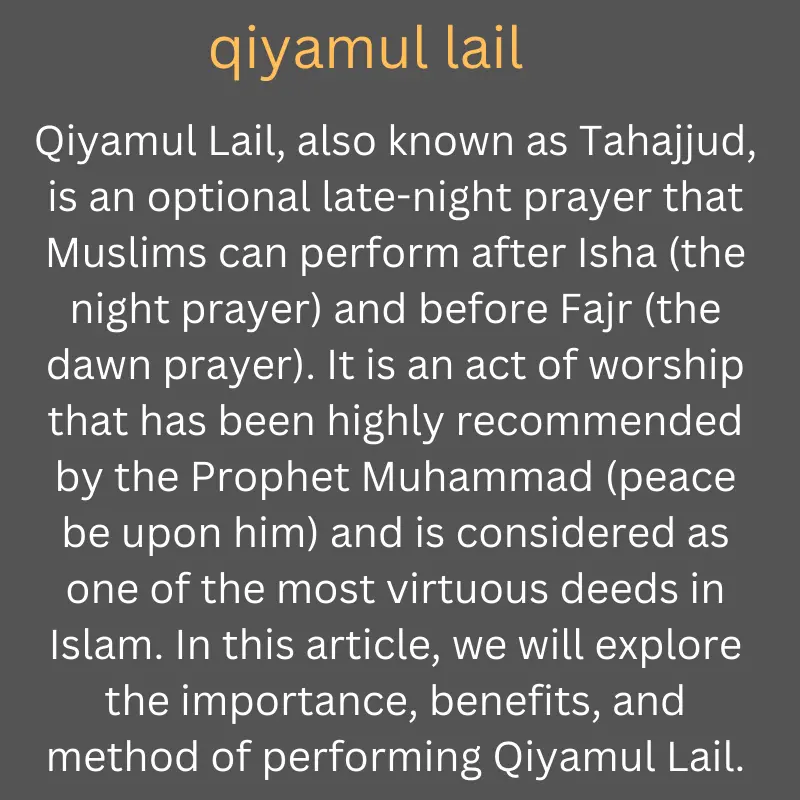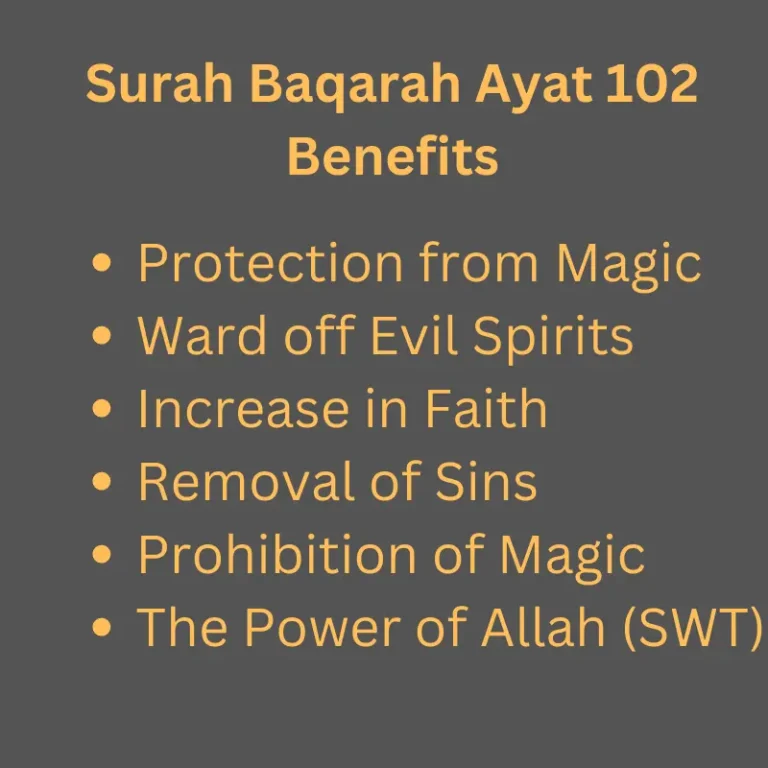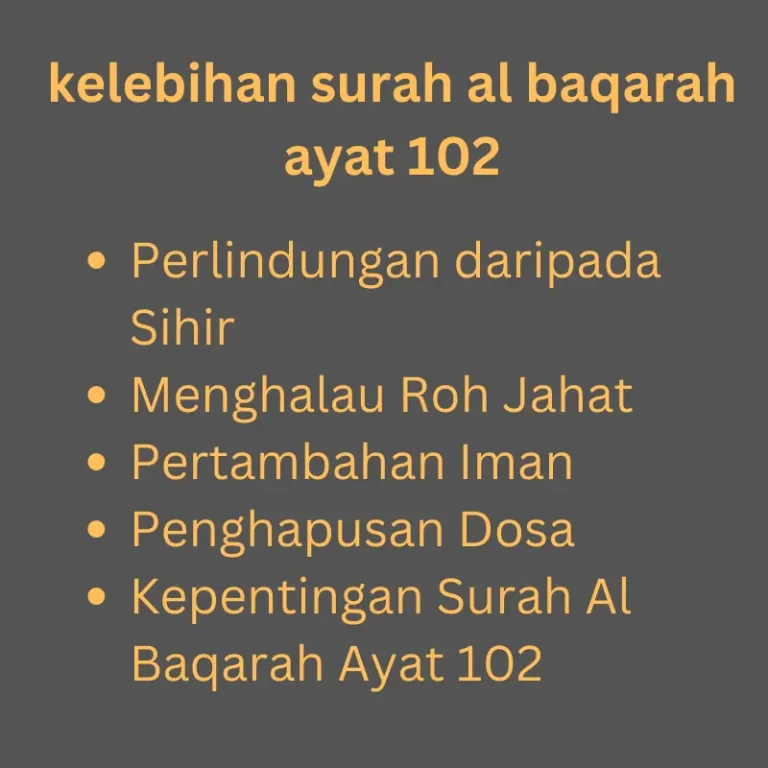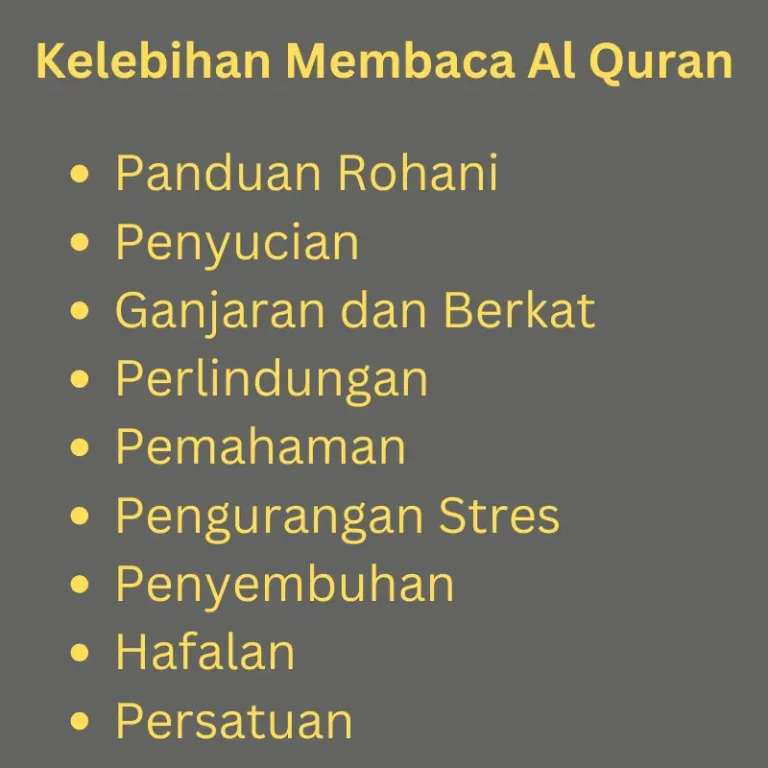Qiyamul Lail, also known as Tahajjud, is an optional late-night prayer that Muslims can perform after Isha (the night prayer) and before Fajr (the dawn prayer). It is an act of worship that has been highly recommended by the Prophet Muhammad (peace be upon him) and is considered as one of the most virtuous deeds in Islam. In this article, we will explore the importance, benefits, and method of performing Qiyamul-Lail.
Importance of Qiyam al Layl
qiyam al layl is a voluntary prayer that is not mandatory, but its performance holds great significance in Islam. It is a means of attaining Allah’s pleasure and forgiveness, and it helps to strengthen one’s faith and spiritual connection with Allah. The Prophet Muhammad (peace be upon him) said, “The best prayer after the obligatory prayers is the night prayer” (Muslim).
Benefits of Qiyamul Lail
Performing Qiyam ul Layl has numerous benefits for both the physical and spiritual well-being of a person. Some of the benefits are:
1. Increased blessings and reward
Allah has promised immense rewards for those who pray at night. The Prophet Muhammad (peace be upon him) said, “Whoever prays Qiyamul Lail with faith and expecting Allah’s reward, his previous sins will be forgiven” (Bukhari).
2. Strengthening of faith
Qiyamul Lail helps to increase one’s faith and spiritual connection with Allah. It provides an opportunity to reflect on one’s actions and seek forgiveness for any wrongdoings.
3. A source of tranquility and peace
Praying at night helps to calm the mind and soul. It is a time when there are fewer distractions and one can focus solely on their connection with Allah.
4. Physical Benefits
Qiyamul Lail helps to regulate sleep patterns and improve overall health. It has been proven that waking up at night and performing physical activity can reduce the risk of various diseases.
How to perform Qiyamul Lail
Performing Qiyam ul Layl is easy, and it can be done alone or in congregation. The method is as follows:
- Perform Wudu (ablution) as one would do for any other prayer.
- Start with two Rakats (units) of prayer, and then offer as many Rakats as one wishes. It is recommended to offer at least two Rakats.
- In each Rakat, recite Surah Fatiha (the first chapter of the Quran) and any other Surah or verses from the Quran.
- After completing the Rakats, offer Witr prayer, which is one Rakat, and recite the Dua Qunoot.
- End the prayer with the Salam.
qiyam al layl is an act of worship that has numerous benefits for a Muslim’s physical and spiritual well-being. It is a means of attaining Allah’s pleasure and forgiveness, and it helps to strengthen one’s faith and connection with Allah. Muslims are encouraged to perform Qiyamul-Lail regularly, especially during the last third of the night when Allah descends to the lowest heaven to grant forgiveness and blessings to His servants.
What is the best time to perform qiyam al layl?
qiyam al layl can be performed anytime after Isha and before Fajr, but it is recommended to perform it during the last third of the night.
Can Qiyamul Lail be performed in congregation?
Yes, Qiyamul-Lail can be performed alone or in congregation.
How long should Qiyamul Lail be?
The duration of Qiyamul Lail is not fixed. It can be as long or as short as one wishes.
Is it necessary to offer Witr prayer after Qiyam ul Layl?
It is recommended to offer Witr prayer after qiyam al layl, but it is not mandatory.
What should be recited in Qiyamul Lail?
In each Rakat, one should recite Surah Fatiha and any other Surah or verses from the Quran.
Performing Qiyam ul Layl is an act of worship that holds great significance in Islam. It is a means of attaining Allah’s pleasure and forgiveness, strengthening one’s faith, and achieving physical and spiritual benefits. Muslims are encouraged to make it a regular part of their lives and reap the rewards promised by Allah. So, let’s wake up at night and perform qiyam al layl, seeking Allah’s pleasure and forgiveness.







